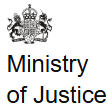If you’re facing separation or divorce and feeling overwhelmed, you’re not alone. Every year, thousands of families across the UK find themselves navigating difficult decisions about children, finances, and property. At Brighter Future Mediation, we specialise in helping families resolve disputes through calm, constructive conversation. Whether you’re navigating child arrangements, separation, co-parenting challenges or wider family conflict, family mediation offers a more peaceful and cost-effective alternative to going to court.
That’s why both the UK government and family courts recommend mediation as the first step—especially when children are involved. It’s a forward-focused process that helps you move on from your current situation with clarity and confidence.
Unlike counselling or therapy, mediation is designed to help you reach practical agreements quickly and respectfully so you can move on. Our experienced mediators guide you through each session, creating a safe space where everyone feels heard and supported.
Key highlights
- Success rate: 90% of clients using Brighter Future Mediation reach agreement (national average is 73% – Family Mediation Council, 2019)
- Cost: our fees £99–150 per person, per 1.5-hour session (average mediator fees in the UK are £130 to £300 per person) vs £15,000–£30,000 for court proceedings
- Speed: 6–12 weeks total vs 12–24 months through courts
- Government support: £500 voucher available for child arrangement cases
- Legal requirement: MIAM attendance is mandatory before most court applications
- Confidential process: Everything discussed remains private and cannot be used in court
- Covers: Child arrangements, grandparents, finances, property, pensions, business assets, and child & spousal maintenance
- Available: Online across the UK at a time that suits you
- Child-focused: Preserves co-parenting relationships and includes children’s voices when appropriate
What is family mediation?
Family mediation is a structured process where a trained, impartial mediator helps separating or divorcing couples reach agreements about their children and finances. Unlike court proceedings, where a judge makes decisions for you, family mediation keeps you in control of the outcome. It works because it focuses on practical solutions rather than blame.
How family mediation differs from other dispute resolution
Family mediation is:
- Voluntary – you can stop at any time
- Confidential – nothing can be used against you in court later
- Collaborative – you work together to find solutions, with help
- Future-focused – concentrating on what works going forward
- Cost-effective – typically 75% cheaper than court proceedings
All qualified mediators in England and Wales are regulated by the Family Mediation Council (FMC), which sits within the Ministry of Justice. Mediators follow the FMC Code of Practice.
The family mediation process: step by step
- Initial contact and MIAM booking – Individual MIAM appointments are booked within 5–7 days of enquiry.
- MIAM (Mediation Information and Assessment Meeting) – A confidential meeting (up to an hour) to assess suitability and explain the process.
- Joint mediation sessions – If both parties agree to proceed, joint sessions begin. These typically last 90 minutes online with both clients in the online meeting or using shuttle mediation (separate breakout rooms).Typically 2–4 sessions to identify issues, explore options, and finalise agreements.
- Agreement documentation – Results in a Memorandum of Understanding (MOU) and/or an Open Financial Statement (OFS) or Parenting plan, which can be made legally binding via consent order.
What family mediation can help you resolve
- Children and parenting arrangements – living arrangements, holidays, school decisions, routines, healthcare, special occasions, extended family contact, child maintenance, new relationships.
- Financial and property matters – property division, pension sharing, business interests, savings, debt responsibility, spousal and child maintenance.
- Complex family situations – international families, high-net-worth couples, blended families, same-sex couples, older couples, grandparents.
Child Inclusive Mediation (CIM)
Typically for children aged 10 and above, Child Inclusive Mediation (CIM) allows specially trained mediators to speak with children separately. This helps parents understand their children’s perspectives while maintaining age-appropriate boundaries.
When family mediation might not be suitable
Mediation may not be suitable in cases of ongoing domestic abuse, mental health crises, substance abuse, complete refusal to engage, child protection concerns, or criminal proceedings. There are 15 exemptions to MIAM attendance before court.
The legal position of mediation in England and Wales
Mediation is voluntary but strongly encouraged by the courts. Parties must attend a MIAM before applying to court. Agreements reached in mediation are not automatically legally binding but can be made binding with a court’s approval.
Conclusion
Family mediation offers a compassionate, cost-effective, and empowering alternative to court proceedings. At Brighter Future Mediation, we’re here to help you move forward with clarity and confidence.















